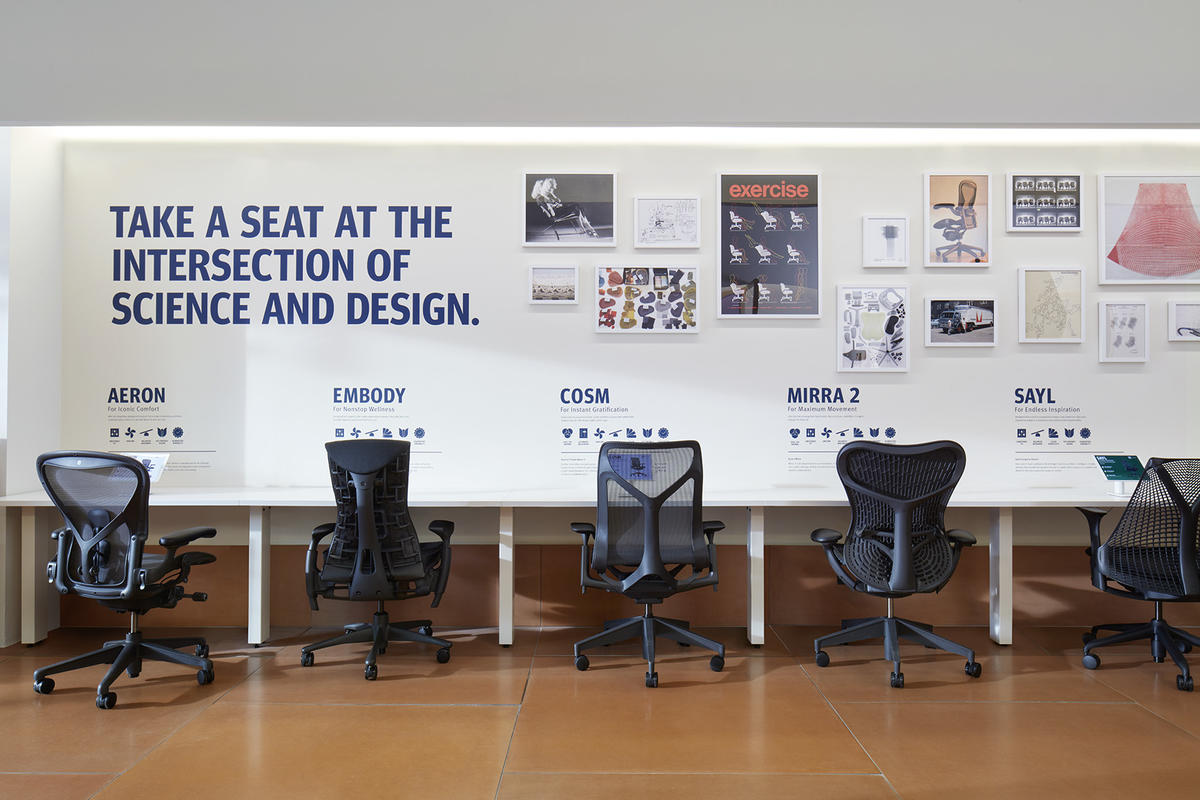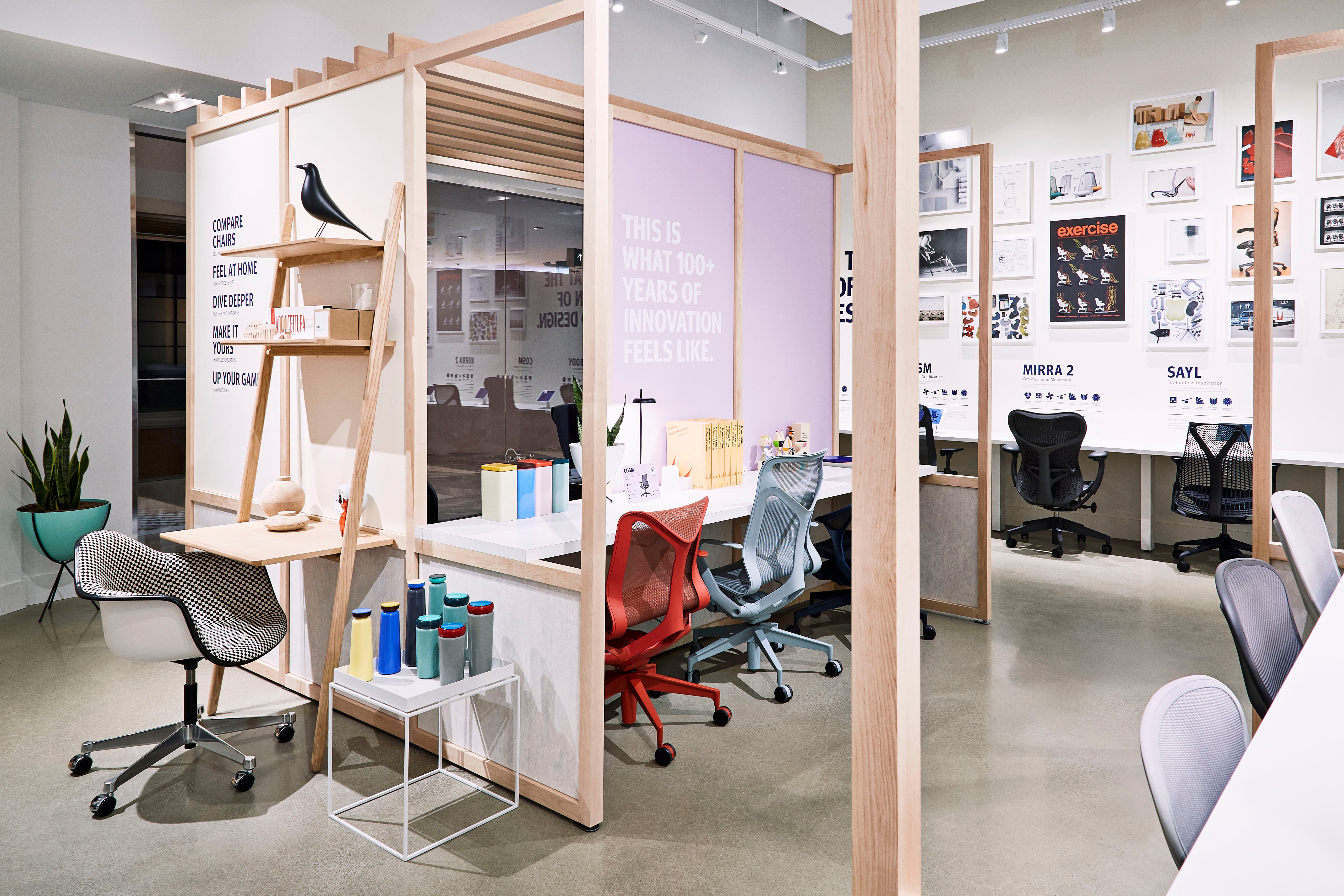Wall Street can’t quite make up its mind about Herman Miller these days. Is it a work-from-home play like Zoom or DocuSign, or should we think of it more as a reopening trade like airline and hotel stocks? Is it a retailer or an office furniture maker?
The answer is all of the above.
While best known as an office furniture giant, Herman Miller saw meaningful shifts happening in the work space long before COVID. As a result, the company began expanding into retail and consumer-facing brands years ago. Design Within Reach and the Danish brand Hay are two primary examples of the company’s retail acquisition and expansion strategy, which continues unabated despite the challenges of the day.
As the company’s recent earnings release reminds us, however, that shift toward other revenue streams can’t come fast enough to offset the continuing slowdown in the commercial office space.
Herman Miller breaks out its financial statement into three broad categories: North American contract, international contract, and retail (which includes DWR, Hay, and the recently opened Herman Miller concept stores). For the quarter ended November 28, the company reported earnings of slightly more than $51 million on revenues of $626 million; revenues fell by 7 percent from this quarter last year, and earnings declined by nearly 35 percent.
The good news—and there is good news—is that the retail side of Herman’s Miller’s business is growing rapidly. Retail sales rose in the quarter by nearly 29 percent to $135 million, work-from-home-related sales increased by 270 percent in the quarter, and retail e-commerce orders rose by 219 percent. Order volume was even running ahead of revenue, as it increased by 41 percent. International sales were also a bright spot. That segment of the business saw sales jump 42 percent to $168 million as the company’s efforts to expand its international presence continue to find success.
But there’s bad news, too. As you might expect, the North American contract side of the business has been hit the hardest by the pandemic. Unfortunately for Herman Miller, sales to dealers and office specifiers still represent half of the company’s revenue—which means that when sales fall by nearly 30 percent, as they did in the recent quarter, the impact is felt company-wide.
To combat the challenges the company is facing on the office front, Herman Miller has assembled an Innovation Incubation team. Designed, as the company wrote in a financial statement earlier this year, to “identify emergent and disruptive concepts that further drive growth across Herman Miller Group,” the team is bringing new ideas—and potentially even new markets—to the forefront.
Gaming was one of the team’s first focuses, resulting in a partnership with gaming tech brand Logitech G that led to the development of a task chair designed specially for gamers. When it debuted in July, Herman Miller commissioned hundreds of social media influencers to test out the chair, bringing a wave of new traffic and customers to its site. The company says it is pleased with the early results.

The new Herman Miller concept stores, the first of which opened in New York and Los Angeles in November, was also born out of the Innovation Incubation team. The focus on these retail outposts is not to show the brand’s entire assortment, but rather to touch and test some of its star products. Early results there show that 82 percent of the customers who come in to experience the Aeron chair and the rest of the company’s home office solutions are learning about the brand for the first time. That sounds like a growth opportunity indeed.
The question for Herman Miller shareholders is whether any of these new concepts look like they have the potential to grow quickly enough to offset the dramatic sales declines that continue to face the North American contract side of the business. And does Herman Miller have the financial strength to emerge from this transformative time even stronger? The shares fell sharply after the earnings release two weeks ago and have since broken their recent uptrend, which suggests traders are losing faith and their patience is wearing thin—a position we all find ourselves in as the end of 2020 draws near.
Homepage photo: The new Herman Miller concept store in New York’s Hudson Yards development | Courtesy of Herman Miller
____________
Dennis Scully is the host of the weekly BOH podcast, where he explores the changes and challenges facing the interior design community through interviews with industry thought leaders, entrepreneurs and creatives. Scully was previously a business development consultant for major trade brands, and has held sales and marketing roles at Domino, Waterworks and Twill Textiles. In his Market Watch columns, Scully calls upon his background as an analyst and longtime securities trader as he explores the ins and outs of the home industry’s publicly traded businesses.





























